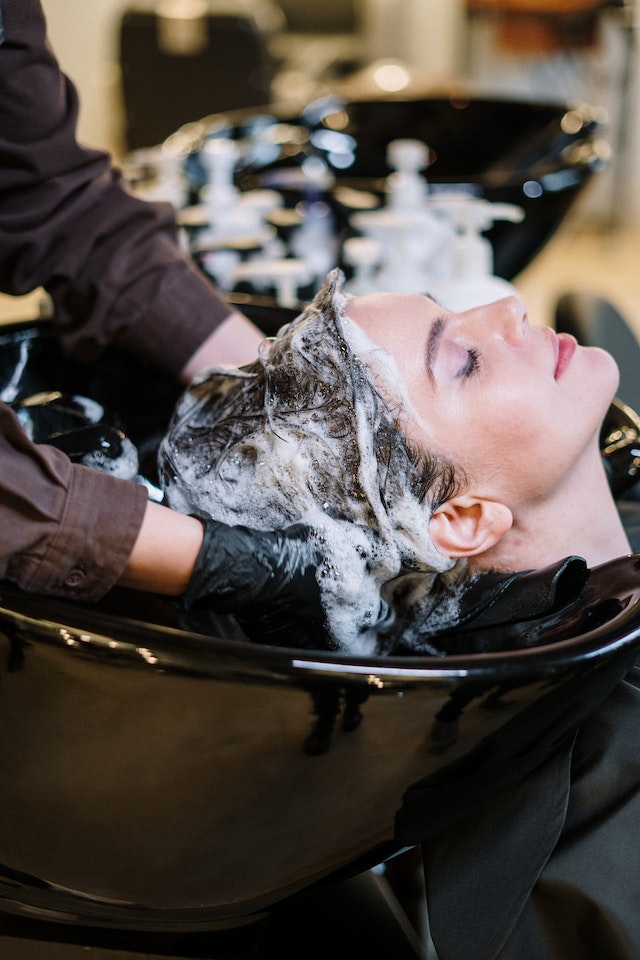Caffeine shampoo has gained attention for its potential role in promoting hair growth. While scientific research on this topic is still ongoing, several studies have explored the mechanisms by which caffeine might impact hair growth. In this article, we’ll delve into the science behind caffeine shampoo’s effect on hair growth to understand the potential benefits it may offer.
1. Hair Growth Cycle:
To understand how caffeine shampoo may influence hair growth, it’s important to grasp the basics of the hair growth cycle. Hair follicles undergo a continuous cycle of growth (anagen phase), regression (catagen phase), and rest (telogen phase). Anagen is the active growth phase, during which the hair shaft elongates. Anagen duration is crucial for determining the length and density of hair.
2. Potential Mechanisms of Caffeine on Hair Growth:
Caffeine is believed to affect hair growth through several mechanisms:
– Stimulation of Hair Follicles: Caffeine is thought to stimulate the hair follicles by promoting increased blood circulation to the scalp. Improved blood flow may enhance the delivery of essential nutrients and oxygen to the hair follicles, promoting their activity and potential hair growth.
– Prolongation of Anagen Phase: Some studies suggest that caffeine may prolong the anagen phase of the hair growth cycle. By extending the growth phase, caffeine may allow hair to grow longer before transitioning into the regression phase.
– Inhibition of DHT: Dihydrotestosterone (DHT) is a hormone known to contribute to hair loss in individuals with a genetic predisposition. Some research suggests that caffeine may inhibit the effects of DHT on hair follicles, potentially reducing hair loss.
3. Laboratory and Animal Studies:
Many studies investigating the effects of caffeine on hair growth have been conducted in laboratory settings or using animal models. These studies have shown promising results, indicating that caffeine can stimulate hair follicle growth and prolong the anagen phase in vitro or in animals. However, it’s important to note that findings from these studies may not directly translate to human hair growth.
4. Human Studies and Clinical Evidence:
While laboratory and animal studies provide preliminary insights, human studies evaluating the effects of caffeine shampoo on hair growth are limited. Some small-scale clinical studies have shown positive results, suggesting that caffeine-based products can lead to increased hair growth and improved hair density. However, larger-scale, well-designed clinical trials are needed to establish the efficacy and safety of caffeine shampoo for hair growth in humans.
5. Individual Variations and Considerations:
Hair growth is a complex process influenced by various factors such as genetics, hormones, and overall health. The effectiveness of caffeine shampoo may vary among individuals. Additionally, factors such as caffeine concentration, formulation, and application technique may influence the results. It’s important to approach caffeine shampoo with realistic expectations and consider it as part of a comprehensive hair care routine.
Conclusion:
While the science behind caffeine shampoo’s effect on hair growth is still evolving, preliminary research suggests that caffeine may have the potential to stimulate hair follicles, prolong the anagen phase, and inhibit the effects of DHT. However, more extensive clinical trials are necessary to establish the true efficacy and safety of caffeine shampoo for hair growth in humans. It’s important to consult with a healthcare professional or dermatologist for personalized advice and consider a holistic approach to hair care, including a balanced diet, gentle hair care practices, and, if needed, other evidence-based treatments, to support overall hair health.




